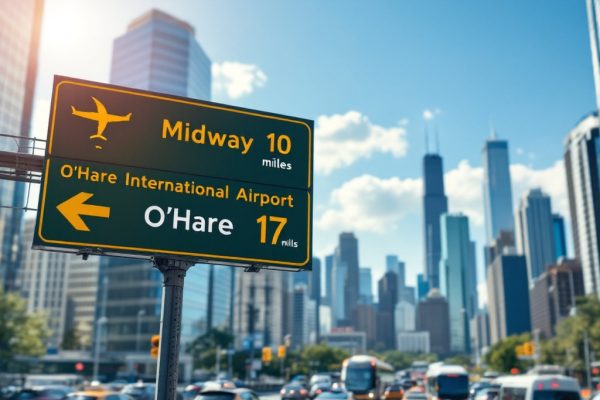Will I Get Stopped at the Airport if I Have a Warrant?
Traveling with an outstanding warrant? Discover the potential consequences, from airport detention to extradition. Learn how warrants impact domestic and international travel, and why consulting a lawyer is crucial before you fly. Don’t risk your trip; understand your rights and options now.
Important information

- An outstanding warrant lets police arrest you, often for missing court or ignoring a judge’s orders. This can stop you from flying.
- Domestic flights with a warrant are risky. Airport checks may find the warrant, causing arrest, especially with federal warrants.
- International travel with a warrant is very risky. You’re more likely to be detained due to stricter checks. Serious warrants can cause extradition.
- If detained, local police will arrest you. Consequences vary based on the warrant, from fines to jail time.
- Consult a lawyer before traveling with a warrant. They can help resolve it or advise you on minimizing travel issues.
Understanding Warrants and Air Travel
An outstanding warrant is a court order that authorizes police to arrest someone. It typically means an individual has missed a court appearance or failed to comply with a judge’s orders. This can create significant travel complications, especially for air travelers, potentially preventing them from boarding a plane.
What is an Outstanding Warrant?
An outstanding warrant is a serious legal matter that authorizes law enforcement to arrest an individual. This typically occurs if someone misses a court appearance or faces new criminal charges.
How Warrants Affect Your Ability to Fly
Traveling on a domestic flight with an outstanding warrant is possible, but risky. Airport security checks often reveal warrants, leading to immediate detention or arrest upon arrival, especially with federal warrants. This is because arrival at your destination often involves further security checks.
Legal Authority of Warrants at Airports
Traveling with an active warrant can lead to complications at the airport. While the TSA’s main focus isn’t apprehending individuals with warrants, your name might be flagged during the security screening process. Various warrants, such as arrest warrants, bench warrants, or even search warrants, could lead to detention by airport police.
Can You Fly Domestically with a Warrant?
Flying with an outstanding warrant on domestic flights is risky. While possible, airlines might deny boarding if they know about the warrant. Airport police could also arrest you. The TSA focuses on security threats, not warrants, but any police interaction could reveal the warrant and lead to arrest. Carefully consider the potential consequences before flying with an outstanding warrant.
Possibility of Boarding Domestic Flights
While you can technically board a domestic flight with an outstanding warrant, an airline might still deny you boarding due to their internal policies. The TSA’s primary focus is security, not serving warrants, so an airport arrest is improbable, though not impossible.
Airlines’ Authority to Deny Boarding
Airlines can deny boarding even with a valid ticket if you have an outstanding warrant. They are not required to inform law enforcement.
Risk of Detection at Security Checkpoints
TSA agents primarily focus on security threats, but their ID checks against databases can incidentally reveal outstanding warrants. A positive match alerts local law enforcement, who then detain and arrest the individual at the checkpoint.
Challenges of International Travel with a Warrant
Traveling abroad with an active warrant is a gamble. You are far more likely to be apprehended and held by authorities. International travel brings you into contact with numerous law enforcement agencies, such as customs and border protection, in both your departure and arrival countries. These agencies routinely check databases that reveal outstanding warrants, which can lead to immediate detention. The severity of the warrant influences the outcome. Serious offenses increase the likelihood of extradition, while minor ones present a smaller risk. Furthermore, the legal systems of the countries involved and any existing extradition treaties play a significant role in determining your fate.
Increased Risks of Arrest and Detention
Traveling abroad with an outstanding warrant is risky. Arrest is a real possibility, especially with a federal warrant. Foreign authorities often act swiftly on federal warrants, which can lead to immediate detention and potential extradition. The repercussions depend on the warrant’s severity and the laws of the country you are visiting. Traveling internationally with an outstanding warrant is never recommended.
What Happens if Detained at the Airport?
Traveling with an outstanding warrant can lead to immediate arrest upon arrival at the airport. Law enforcement will take you into custody, and the legal consequences depend on the nature and jurisdiction of the warrant. These consequences can range from fines and court appearances to, in some cases, imprisonment. At the airport, local law enforcement officers will verify the warrant and inform you of your rights. Depending on the severity of the warrant, you might be transported to a local jail or detention facility.
Immediate Arrest and Legal Consequences
Airport detention leads to immediate arrest and custody by local law enforcement. The resulting legal consequences depend on the warrant’s severity, ranging from court appearances to fines and even jail time. Failing to address an outstanding warrant can significantly disrupt travel plans and lead to serious legal repercussions. It is crucial to resolve any outstanding legal issues before traveling to avoid such complications.
Interaction with Local Law Enforcement
Airport detentions due to warrants are handled by local police, who verify the warrant and explain your rights. Depending on the warrant’s severity and the jurisdiction, an arrest may occur. This could lead to detention in a local jail or at the airport pending extradition.
Precautions and Legal Advice for Travelers with Warrants
Traveling with an outstanding warrant can seriously impact your trip. Consulting a lawyer beforehand is crucial. They can assess the warrant’s severity and explain its potential travel implications. You might be able to resolve the issue before departure, or your lawyer could negotiate with authorities to minimize disruptions. If travel is unavoidable, legal counsel can advise you on airport procedures, such as arriving early and cooperating with officials. Having legal representation readily available can prove invaluable if problems arise during your travels. Here’s what you should do:
Consult a lawyer. Discussing your situation with an attorney is the first step. They can determine the warrant’s severity and potential impact on your travel.
Explore pre-travel resolution. Your lawyer might be able to resolve the warrant before your departure, eliminating travel concerns.
Negotiate with authorities (if necessary). If pre-travel resolution isn’t possible, your lawyer can negotiate with authorities to minimize potential disruptions during your trip.
Understand airport procedures. If travel is unavoidable, your lawyer can advise you on airport procedures, such as arriving early and cooperating with officials.
Ensure legal representation is available. Having legal representation readily available during your travels can be invaluable if problems arise.
Consulting Legal Professionals
Traveling with an outstanding warrant can lead to serious consequences. Consulting a lawyer is crucial to understand the potential repercussions, which vary depending on the warrant’s nature and jurisdiction. An attorney can explain your legal options, including resolving the warrant before your trip. They can also prepare you for potential airport encounters and ensure your rights are protected. Secure legal counsel before traveling for a safe and worry-free journey. Here’s why you should consult a lawyer:
Understand the Potential Consequences
The severity of the consequences depends on factors like the nature of the warrant and the jurisdiction where it was issued. A lawyer can provide clarity on what you might face, from arrest to fines or extradition.
Explore Your Legal Options
An attorney can advise you on the best course of action, which might include negotiating with authorities to resolve the warrant before your trip. This proactive approach can prevent disruptions and stress.
Prepare for Airport Encounters
A lawyer can help you understand what to expect if you’re questioned or detained at the airport. They can prepare you for potential scenarios, ensuring you know your rights and how to exercise them.
Protect Your Rights
Having legal representation ensures your rights are protected throughout the process. An attorney can intervene on your behalf if necessary, minimizing the impact of the situation on your travel plans.
Minimizing Travel Disruptions
Traveling with an outstanding warrant can lead to serious complications, but proactive steps can help resolve the issue. Consulting a lawyer is crucial. An attorney can explain the warrant’s jurisdiction and potential consequences, and can negotiate with authorities on your behalf, potentially arranging a voluntary surrender. Resolving the matter before your trip minimizes the risk of arrest at your destination and ensures a smoother travel experience. Don’t let an outstanding warrant derail your travel plans; seek legal counsel and safeguard your journey.
Consult a lawyer. Speaking with an attorney is the first step to understanding the implications of your warrant.
Understand the warrant. Your lawyer can explain the warrant’s jurisdiction and potential consequences.
Negotiate with authorities. Your lawyer can negotiate with authorities on your behalf, potentially arranging a voluntary surrender.
Resolve the matter. Addressing the warrant before traveling minimizes the risk of arrest and provides peace of mind.











